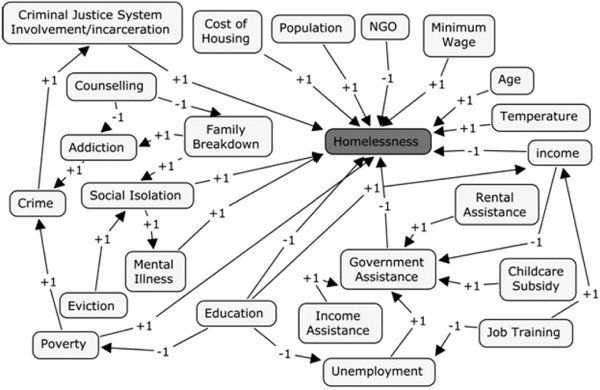The Trouble with Jesus
by Constance Hastings
Who Is My Neighbor?
December 17, 2019
The Wrong Question

When is the question not the real question, or when is the answer not the full answer?
Take the parable Jesus told of “The Good Samaritan.” Who is my neighbor? was the question posed to Jesus by a lawyer of religion. (Luke 10:25-37) The law said, “Love God…and love your neighbor. So Good Lord, define your terms. Rather than a legalistic textbook answer, Jesus tells a story.
Most people have heard it or if not the full story, at least the term, Good Samaritan. It’s so common it’s actually a dictionary entry, and Alexa is equally familiar with it. Based in the story is a man who was robbed and beaten by bandits and a stranger known as a Samaritan. The stranger gives him first aid and takes him to an inn for care. The Samaritan leaves the innkeeper with extra money to care for the man and a promise of more if necessary when he makes a return trip.
Who is my neighbor? The official definition is a person who gratuitously gives help or sympathy to those in distress. The Samaritan fits the description. He didn’t have to stop and help this guy; there was no reward in doing so. After all, the poor guy was robbed. He likely didn’t have anything left to repay the help the Samaritan gave. When the Samaritan found him, he was half dead. He couldn’t even work it off. So what the Samaritan did for this poor soul was out of his pocket and nothing going back in. But he did help the guy out and saved his life. Good for him! We should all be like this, and if so, the world would be a gentler, kinder place.
Good grief, no.
Well, if you like those kind of stories that make you feel good with what’s just on the surface, remember, some people get the same benefit from watching porn. (NOT a suggestion, try Hallmark movies instead.) The passage deserves a closer look, and you’d think a good lawyer would know that.
The unlikely hero in this story is a Samaritan. Jesus’ audience was Jewish. Jews hated Samaritans. Jews hated Samaritans for all the ethnic, racial, religious reasons the human race can dig up to separate people. It was prejudice to the core. For these law-biding Jews to listen to a story whereby one of their own was indebted to “those kind of people” was sickening. Jesus doesn’t feel it.
Who is my neighbor?
Yes, that was the question, but at the end of the story, Jesus doesn’t leave it there. He had this problem of not knowing when to just let things be, end on a high note, gain some much needed respect from the religious elite who plainly did not like him. Oh no, instead he takes that question and reverses it. “Now which of these three would you say was a neighbor to the man who was attacked by bandits?” That means, the one in need is not my neighbor, but the one who gave the help. If the Law says, Love your Neighbor, and my Neighbor is the guy I hate, then what am I going to do?
It wasn’t the first time Jesus had said this. The “Love your Neighbor” thing is preached across spiritual realms. No, Jesus pushed into places that were uncomfortable in the least and threatening to the power brokers of the day. In his big Sermon on the Mount, he’d said it more directly, “You have heard that the Law of Moses says, ‘love your neighbor and hate your enemy. But I say, love your enemies, bless those who curse you, do good to those who hate you.” (Matthew 5:43-44)
The lawyer in the scene answered correctly Jesus’ reversed question, “the one who showed him mercy.” But Jesus didn’t let him walk away without a challenge. “Go and do likewise.” Be a neighbor to those in need, and be a neighbor to those who don’t like you and would just as soon see you gone.
“Who is my neighbor?” was a good question, but it was the wrong question. It wasn’t the real question because what the lawyer wanted was an affirmation of what people do anyway just because it’s something to make yourself feel good. That’s a type of domestication.
Jesus didn’t tell stories or preach to let people be good people. His stories instead ask questions of his audience, then and now, that get under the skin, itch and fester until the story sits in the soul.
If you have the urge to be a Good Samaritan sometime, rethink the story. With the full answer then, “Go and do likewise.”
Any who have ever had a mountaintop experience will tell you, it’s nothing that can be planned, arranged, or scheduled. Spiritual encounters come out of the blue, filled with insights, revelations not previously perceived but somehow needed and relevant to a moment or period of life. And they never last. If anything, they serve as touchstones reminding of the source of that power, power greater than oneself in God who was, is and will always be.

Some things just won’t mix or at least shouldn’t: water and oil, light and dark, ammonia and bleach. One will rise above the other, cancel the other out, or react dangerously to anyone around. Throwing salt into a mix could either add flavor or kill off where it landed. Sometimes, Jesus brought things together that might not be a good idea.

Jesus, what really doesn’t make sense is how you say this on your first big stage. Here you are speaking from a first-century arena, on a mountain with your main guys in front and crowds filling in behind. Son of Man, people are seeing you and thinking this is like Moses bringing down the Big Ten from God’s mountain. They want to know again what God is going to do for them as a nation and in their own lives. And all you have are these platitudes?

There’s the narrative, and then there’s the context of that narrative. Should the writer have been more specific, this message may have been banned and burned before its distribution. Ruling powers control the narrative and won’t allow what makes them look less than the shine on their crowns. Sound familiar?

Here we are, the first full week of a new year, and do we ever need one. Sure, much has happened that we didn’t see coming, but we’re almost too familiar with that now. The thing is, are we willing to accept, buy into, focus on what that means? Will we have influence, impact, or at least be open to any newness of life in the coming months? Or again, will we passively accept what has been without resolution to change?
Life must be positioned for change. Prepare to Pivot.

We never get what we want for Christmas. That’s what we think God should do, and almost always, God never does...In a real way though, this is likely the closest to God’s Christmas we may ever know. If we are still as church mice on Christmas Night, we just might see a strange sight through the frosted windowpanes of our souls. God shows up, not how we want, not bringing us all we want. God’s plan is not to fix everything that is wrong in the world, but to meet all the wrong in the world with Love.
Any who have ever had a mountaintop experience will tell you, it’s nothing that can be planned, arranged, or scheduled. Spiritual encounters come out of the blue, filled with insights, revelations not previously perceived but somehow needed and relevant to a moment or period of life. And they never last. If anything, they serve as touchstones reminding of the source of that power, power greater than oneself in God who was, is and will always be.

Some things just won’t mix or at least shouldn’t: water and oil, light and dark, ammonia and bleach. One will rise above the other, cancel the other out, or react dangerously to anyone around. Throwing salt into a mix could either add flavor or kill off where it landed. Sometimes, Jesus brought things together that might not be a good idea.

Jesus, what really doesn’t make sense is how you say this on your first big stage. Here you are speaking from a first-century arena, on a mountain with your main guys in front and crowds filling in behind. Son of Man, people are seeing you and thinking this is like Moses bringing down the Big Ten from God’s mountain. They want to know again what God is going to do for them as a nation and in their own lives. And all you have are these platitudes?

There’s the narrative, and then there’s the context of that narrative. Should the writer have been more specific, this message may have been banned and burned before its distribution. Ruling powers control the narrative and won’t allow what makes them look less than the shine on their crowns. Sound familiar?

Here we are, the first full week of a new year, and do we ever need one. Sure, much has happened that we didn’t see coming, but we’re almost too familiar with that now. The thing is, are we willing to accept, buy into, focus on what that means? Will we have influence, impact, or at least be open to any newness of life in the coming months? Or again, will we passively accept what has been without resolution to change?
Life must be positioned for change. Prepare to Pivot.

We never get what we want for Christmas. That’s what we think God should do, and almost always, God never does...In a real way though, this is likely the closest to God’s Christmas we may ever know. If we are still as church mice on Christmas Night, we just might see a strange sight through the frosted windowpanes of our souls. God shows up, not how we want, not bringing us all we want. God’s plan is not to fix everything that is wrong in the world, but to meet all the wrong in the world with Love.


